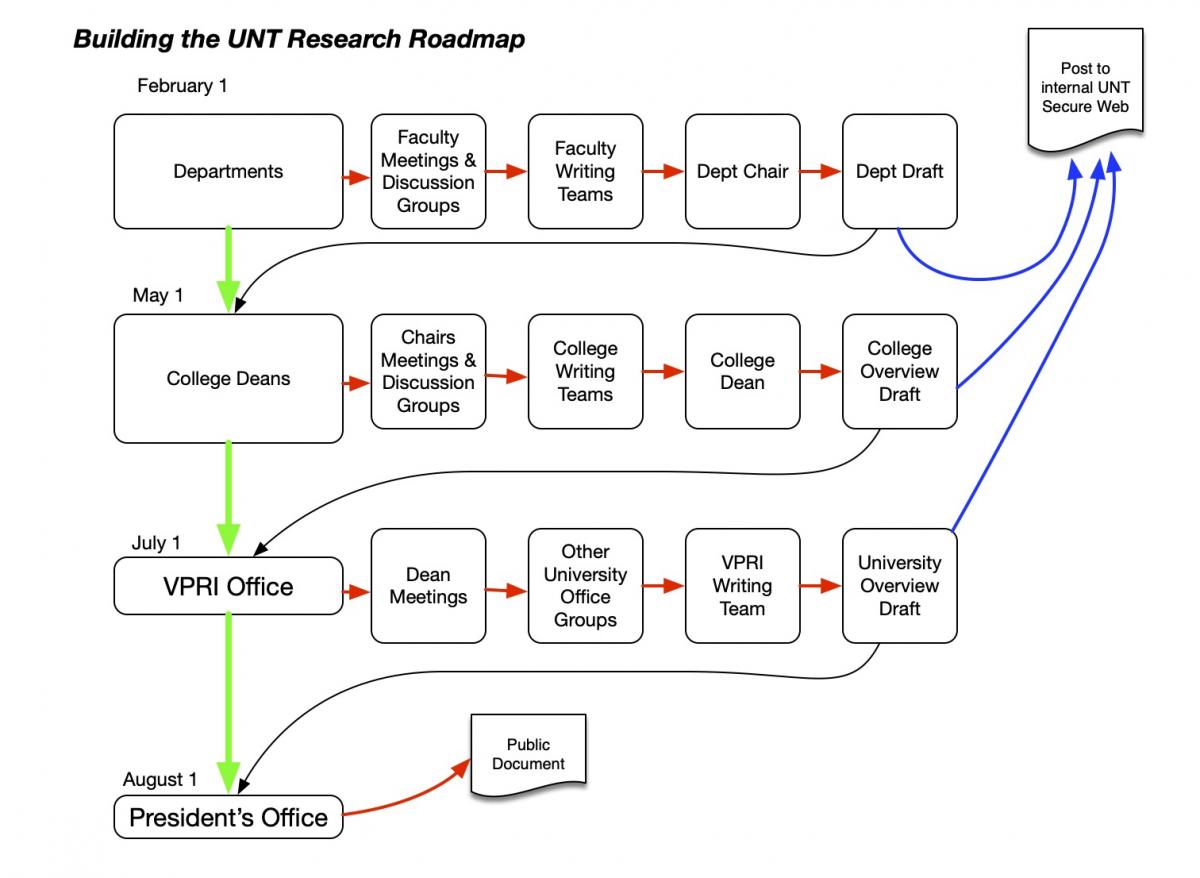What is the UNT Research Roadmap?
The UNT Research Roadmap is a planning document for the University of North Texas. This roadmap is built on the directions and focus of the faculty, discipline by discipline. In this document, it is recognized that the faculty departments own the future of research directions for this institution and it is the faculty that should set the goals and aspirations for the future of UNT research. Each faculty member represents the embodiment of a program here at UNT, and it is the combined efforts of these programs that represent the core future of the discipline. This approach calls upon the faculty to set the future directions of this institution as they describe the core competency and vision for their department and their discipline.
The Research Roadmap starts by asking each academic department, representatives of the disciplines within UNT, to answer 10 core questions. The responses to these questions will help others see the sense of vision, strength, opportunity, and challenges that the department foresees in its future as the foundation of this R1 research university. In some cases, we have academic departments that are constituted by a couple of core disciplines. In that case, we still ask for a department-wide vision using the multiple disciplines represented within the department.
One might ask why should we focus on the academic discipline? The reason is simple, that as an R1 Research University, we build our capacity based on the talent of our researchers hired by each academic program. Each discipline/department should be able to envision their combined strength as a core pillar of the R1 institution. It is this discipline-based research expertise that will be drawn upon to contribute to multidisciplinary, large-scale efforts- where broad talents are required to create powerful research teams to explore the issues at hand.
Resource Documents
The following documents are resources being used by the departments to launch this process.
- Deans Instructions for the Research Roadmap
- Department Questions
- Draft Research Roadmaps (login with unt email & password to view sharepoint files)
Deadlines
- Draft department reports are due to the VPRI office and deans by May 1st
- Draft college overviews are due to the VPRI office by July 1st
Research Roadmap Diagram
